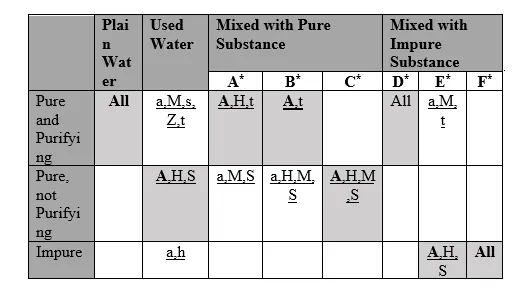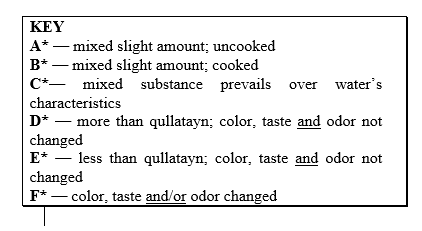If something that is pure, but not purifying, was cooked in the water or mixed with the water, and it changed its name (characteristics), 23 or if it was used in removing a ritual impurity, then it would be stripped of its attribute of being a purifier. 24
وإن طُبِخَ في الماء ما ليس بطَهُورٍ، وكذلك ما خَالَطَهُ فَغَلَبَ عَلى اسْمِهِ، أَوْ اسْتُعْمِلَ فِيْ رَفْعِ حَدَثٍ سَلَبَ طَهُوْرِيَّتَهُ.


